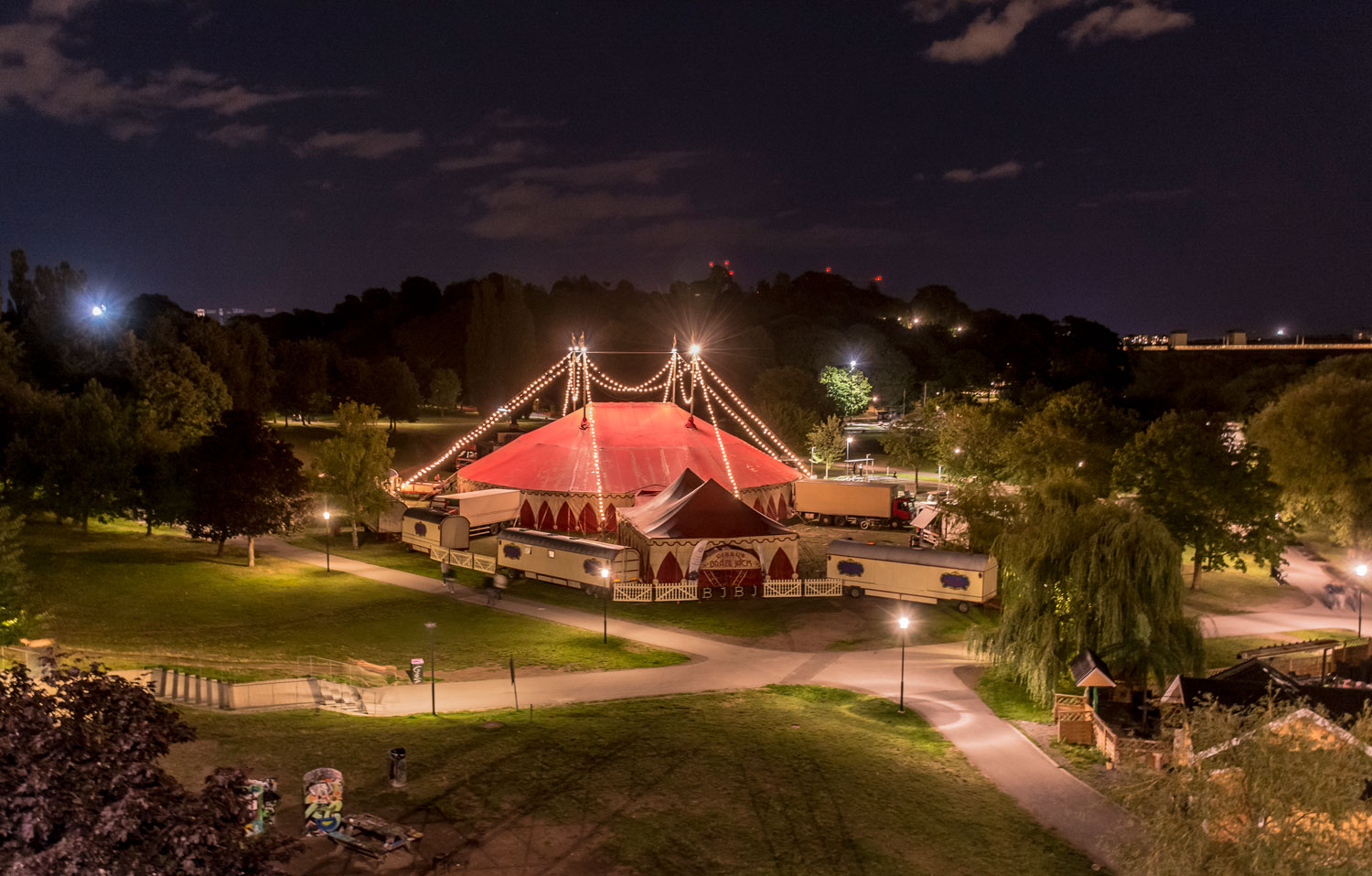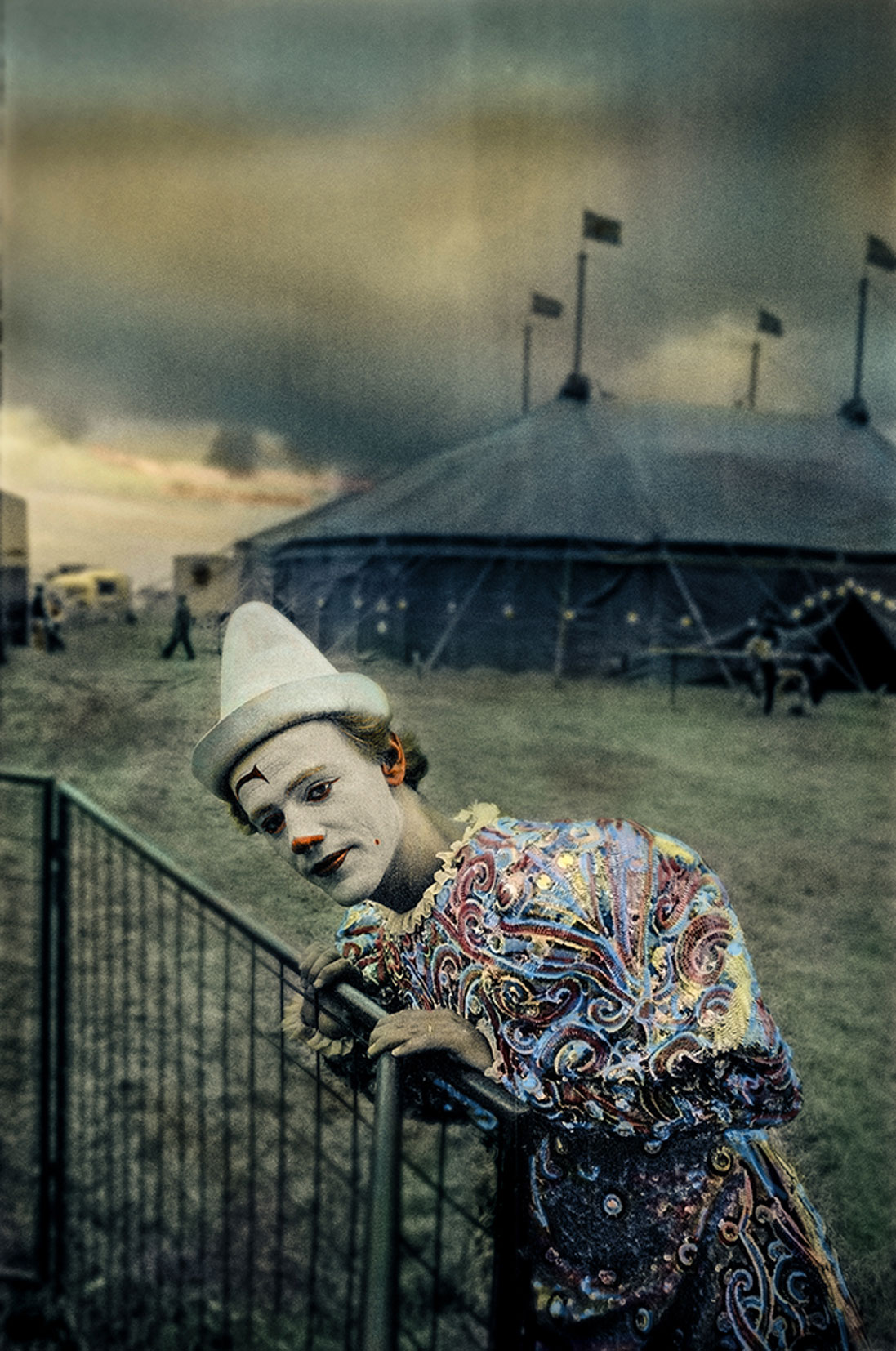- Startpage
- In English
- The Inventory
- Touring classic circus
Touring classic circus
Circus as an art form includes a number of different genres such as music, acrobatics and dance. The classic circus originated in the cavalry and many of the areas of knowledge within circus are connected to aspects of equestrianism.
Location: Nation wide

Circus Brazil Jack in Stockholm 2019. Photo: Per Grahn.
Circuses have been touring in Sweden since the late 18th century. Initially, performances were in the open air, but were later moved into purpose-built buildings, some of which still exist. Performing in tents became common in the early 20th century under the influence of American circuses. The tent made it possible to tour as the circus was no longer dependant on fixed buildings to perform. In the beginning, circuses were transported on trains but eventually there was a transition to using trucks.
In the early 20th century, there were around 20 circuses in Sweden, but the number has varied depending on factors such as the economic situation and audience interest. The number has steadily declined since the 1980s, and there are now only a few active circuses left in the country. A number of linked factors have contributed to this, including increased fees for use of land, increased rental fees for circus locations as well as new animal welfare rules. The adaptation has been very challenging for many circuses. Circus life is a lifestyle and the tradition is deeply rooted among performers. Many have a desire to preserve the art form and to raise the status of circus so that the art form can continue to exist in the future.
Circus arts are well documented today. Knowledge has long been passed down through the generations either within the family or to relatives or through recruitment of young people who were offered training from older artists. In the 1940s, a special circus school was started that was later turned into a upper secondary school programme. There are now opportunities for circus training at upper secondary level as well as higher education level. Stockholm University of the Arts has a bachelor’s programme in the subject with an opportunity for further study. Many places in the country also have circus schools focused on leisure activities.

Photo: Per Eric Åström.
